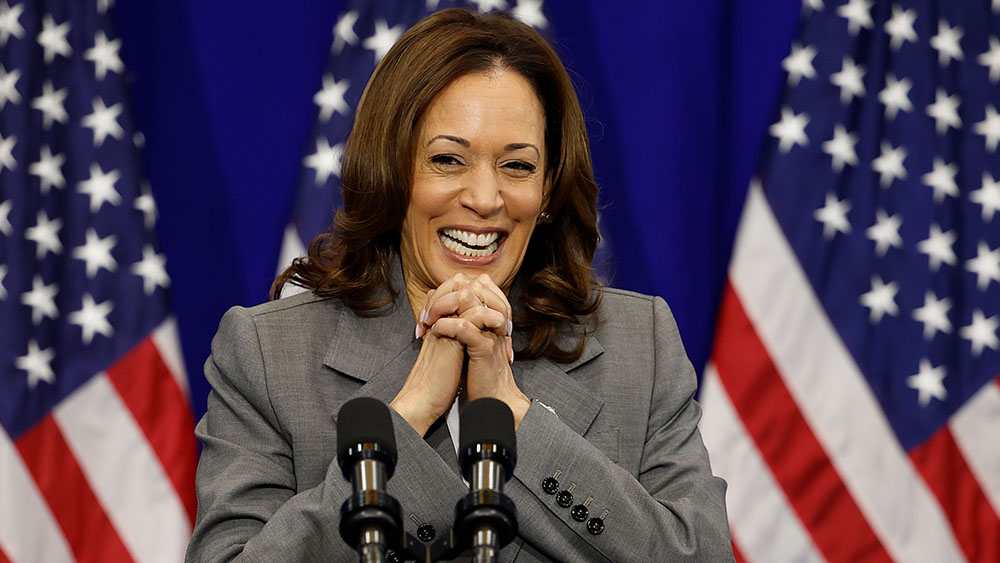For the first time in history, interest on U.S. debt surpasses $1 trillion and now threatens social security as the greatest government expense
09/15/2024 / By Lance D Johnson

According to the latest Treasury Department data, the national debt now exceeds $35.3 trillion. The amount of money required to service the U.S. debt has reached levels that exceed Medicare expenditures, the military budget, etc.
For the first time in history, interest on U.S. debt surpassed the $1 trillion mark, becoming the second greatest government expense, trailing only Social Security expenditures ($1.5 trillion). But according to economists, it is only a matter of months before the interest on the debt exceeds $1.6 trillion and brings the U.S. economy to its knees.
This is a national crisis and isn’t even discussed at the national level (and wasn’t even mentioned in the presidential debates).
The value of the U.S. dollar is rapidly being destroyed, and isn’t being discussed at the national level
While the government elite have enjoyed decades of deficit spending under both political parties, the current regime has accelerated the economic damage to unthinkable levels.
In order to prop up the failing economy, the Biden-Harris regime just infused $686 billion into the economy in August. In doing so, they just caused the greatest monthly budget deficit in U.S. history, perpetuating inflation to levels never seen before in U.S. history. This will necessitate even higher interest rates again to stave off inflation. With interest rates at their highest in 40 years, the cost of servicing this debt will continue to spiral out of control.
August’s budget deficit soared to a staggering $380 billion, representing a more than 50% increase from July’s $243 billion deficit and a 66% jump from the same month last year. The deficit figure also came in nearly $100 billion above the median estimate of $292.5 billion, a stark figure that led to the Treasury’s decision to release the data discreetly after hours to minimize immediate public scrutiny.
The August surge in deficit spending is largely attributed to a dramatic uptick in government expenditures, which hit a high of $686 billion for the month. This spending spree is being viewed as a strategic move by the Biden administration to stimulate the economy ahead of the upcoming election, aiming to stave off a potential recession.
By propping up the stock market, the government appears to have rebounded, capitalizing on higher capital gains taxes as the stock market bubble expands. However, this revenue boost has done little to counterbalance the massive spike in interest payments.
Interest on U.S. debt projected to hit an untenable $1.6 trillion by year’s end
The new record for interest payments on the national debt is particularly striking. For the first time ever, the cumulative total for fiscal year 2024 has reached $1.049 trillion with one month remaining in the fiscal year. When annualized, this figure climbs to approximately $1.2 trillion, putting it on track to become the largest single government expenditure.
Interest payments on the national debt now eclipse major spending categories such as defense, income security, health, veteran’s benefits and Medicare. The only outlay that currently exceeds interest payments is Social Security, which stands at around $1.5 trillion annually. However, the interest payments are projected to surpass $1.6 trillion by year’s end.
The U.S. economy is headed for collapse, and it’s too late to make any major changes without drastically altering the life of Americans. It won’t matter if a business-minded Donald Trump becomes President, or even if budget-minded libertarian becomes president. The economic damage has already been wrought and the consequences will only intensify from here.
As the U.S. approaches a critical juncture in its fiscal policy, questions are mounting about the future trajectory of the national debt and the implications for the broader economy. With the political landscape set to shift in the coming election, the next administration will face immense pressure to address the growing debt crisis, even if this crisis is being ignored by the media and the political elite.
Sources include:
Submit a correction >>
Tagged Under:
Biden regime, budget deficit, Collapse, debt, debt crisis, debt servicing, depression, economic riot, fiscal policy, government debt, government spending, Harris, inflation, interest rates, interst payments, money supply, national debt, pensions, recession, risk, stock market bubble, suppressed, Trump, US debt, US economy, White House
This article may contain statements that reflect the opinion of the author
RECENT NEWS & ARTICLES
COPYRIGHT © 2017 DISASTER NEWS




















